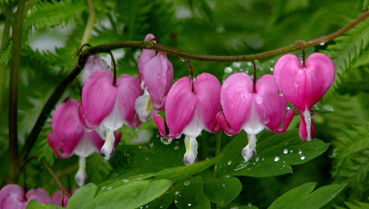
And their little feet, too!
Yes, that rather innocuous looking flower is a thug.
Garlic mustard (scientific name Alliaria petiolata, in the Brassicaceae* [Mustard] family) is an invasive cool weather biennial common in Midwest woodlands. It's related to mustard, broccoli, cabbage, radishes, sweet rocket, stocks, and many other commonly known plants; as you might guess, it's also edible, with a garlicky scent and flavor (although I can't vouch for the taste as I've never tried it).
But the key word in the previous paragraph is invasive. Garlic mustard is quite aggressive; in fact, the Indiana Native Plant and Wildflower Society considers it one of the ten most destructive invasive plants in Indiana. It begins growth in very early spring. As a biennial, the first year it forms a rosette; the rosette often remains green throughout the winter and the leaves can photosynthesize whenever the temperature is above freezing. The second year, the rosette shoots up, flowers, produces hundreds of seeds, and dies.
As a non-native plant, it has few natural enemies and easily outcompetes many of the native spring wildflowers, threatening them and the wildlife that depends on them. It can also pop up in your own yard, crowding out the flowers you may be trying to grow. In some forests it's taken over, shading out and destroying most of the native plants. Go to this link and scroll down to see some photos showing just how thick it can get.
Obviously it's a problem.
What can you do? Participate in garlic mustard pulls (many communities, conservation organizations, and parks sponsor these); if you find it in your own yard, cut it at the base (during flower stalk elongation only or it will simply resprout), or pull the plant entirely (make sure to get the roots, although they tend to pull out easily). Educate yourself and others. Help stop this plant.
Here are some links for further information:
- Plant Conservation Alliance
- Garlic mustard handout (PDF file -- a good one to print out and keep on hand)
- Midwest Invasive Plant Network -- learn more about invasive plants and why you should care (another PDF file, this one on invasives in general) about them
- Garlic mustard resources -- a long list of links about garlic mustard














